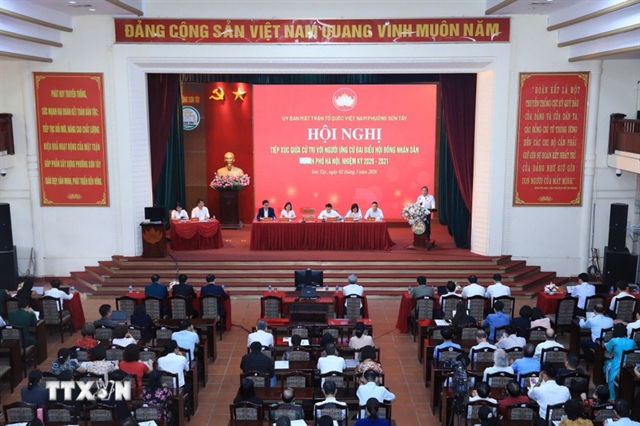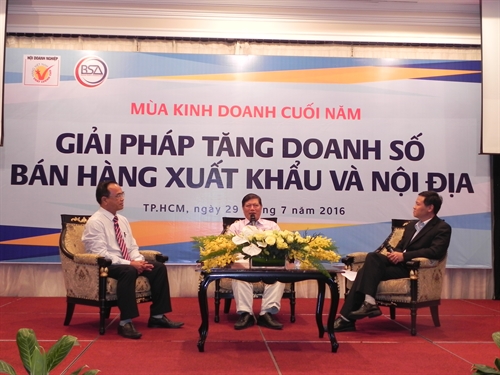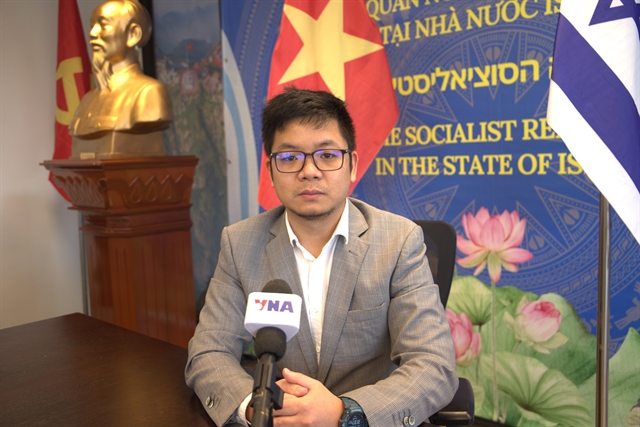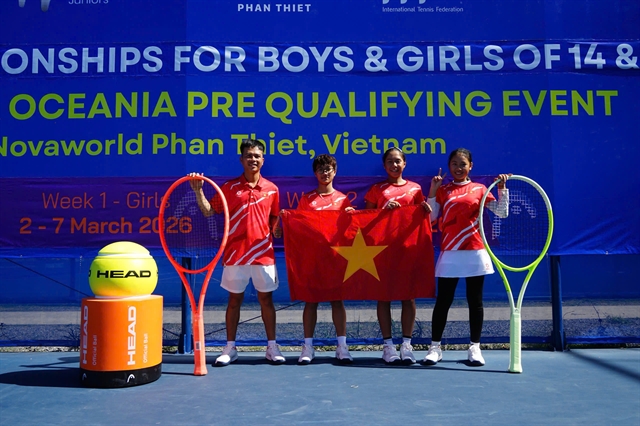 Economy
Economy

To boost sales at the peak shopping season for Tết (Lunar New Year), Vietnamese enterprises need to pay more attention to customer demand in each region in order to map out proper production and distribution plans, delegates told a seminar in HCM City on Friday.
 |
| With Muslims accounting for a large number of population in ASEAN, companies must obtain Halal certification for their products if they want to penetrate ASEAN markets, said Phạm Thanh Bình (C), chairman and general director of Bích Chi Food JSC. — VNS Photo |
HCM CITY — To boost sales at the peak shopping season for Tết (Lunar New Year), Vietnamese enterprises need to pay more attention to customer demand in each region in order to map out proper production and distribution plans, delegates told a seminar in HCM City on Friday.
Trần Thái Hà, a representative from the market research firm Nielsen Việt Nam, said the most-mentioned products during Tết include beer, beverages, coffee, and confectionaries. But the demand was different in each region in the period.
For instance, during last Tết, sales of beer and beverages increased significantly compared to normal time in the south, but in the north, beer and beverages sales slightly reduced, while demand for confectionary went up strongly, she said.
Firms usually release their Tết products in early November, but with the 2017 Tết falling on January 28, earlier than in previous years, businesses should notice that to prepare commodities for Tết early, she said.
Besides, to increase sales during peak season, firms should make efforts to bring their products into retail stores and launch promotional programmes.
Despite the Việt Nam economy showing signs of slowing, its retail sales growth has remained high, she said.
She also shared the top five factors that influence custome decisions over where to buy products. They are availability, quality, location, store personnel and product assortment.
More and more Vietnamese shoppers look for products with healthy ingredients, she said, adding that this is a good opportunity for retailers to boost sales of these products.
Overseas expansion
Delegates at the seminar also shared their experience in penetrating overseas markets.
Nguyễn Đặng Hiến, general director of Tân Quang Minh Manufacture and Trading Co. Ltd ( Bidrico), said by participating in trade fairs held in Myanmar’s big cities, his company found local distributors to distribute its products.
Bridico chose to penetrate the modern trade channels first, by selling its products at a supermarket there, where Myanmar consumers give priority to go for shopping, before distributing its products in the traditional channels, he said.
Philip Zerillo from the Singapore Management University said finding a proper distributor is the most important factor in helping businesses distribute their products abroad.
Businesses should find distributors that give them insights in the local market, so they know how to adapt their pricing and products, he said.
Phạm Thanh Bình, chairman and general director of Bích Chi Food JSC, said 10 years ago, his company only sold in the domestic market, but its earning from exports currently account for 66 per cent of its total revenue, with its processed farm produce available in all ASEAN countries.
To succeed in overseas markets, firms must conduct market research to develop suitable products for the target markets, he said.
With Muslims accounting for a large population in ASEAN, companies must obtain Halal certification for their products if they want to penetrate these markets, he said.
Hiến and Bình agreed that firms need to have different business strategies for each market.
“We can not apply our business strategy for Việt Nam or Cambodia and deploy it in Myanmar,” Hiến said.
Bình said Vietnamese businesses encounter strong competition both in the domestic and overseas markets, so they have no other choice than to make efforts to improve production technology and labour productivity to raise their competitiveness.
At the seminar orgnaised by the Business Studies and Assistance Centre and the Business Association of High Quality Vietnamese Products, delegates suggested the Government provide more support to help Vietnamese firms promote their products abroad. — VNS




